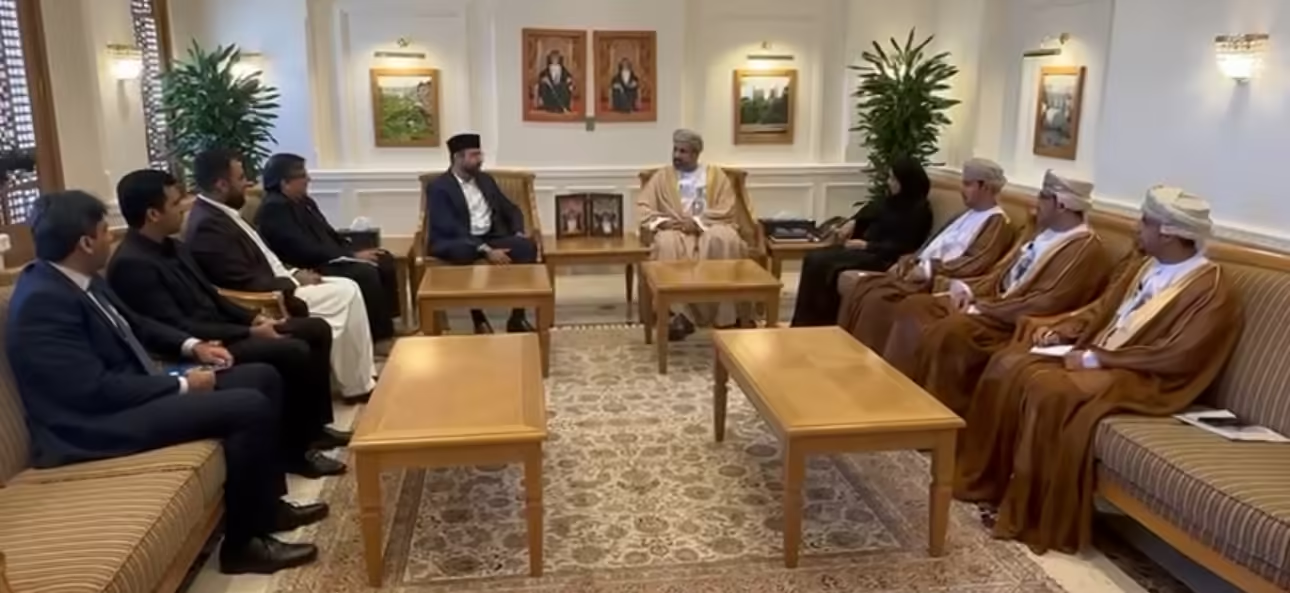The new industrial policy of Pakistan has gained strong support from the business community, with leaders appreciating the government’s efforts to reduce production costs, encourage exports, and revive struggling industries. During a recent meeting with Special Assistant to the Prime Minister (SAPM) Haroon Akhtar Khan, business leaders, including FPCCI President Atif Ikram Sheikh and UBGSM Patron-in-Chief S.M. Tanveer, praised the comprehensive reforms introduced under the policy.
Business Leaders Welcome the New Industrial Policy
The new industrial policy was a central point of discussion during the meeting between business representatives and Haroon Akhtar Khan. FPCCI President Atif Ikram Sheikh congratulated the government on its approach, stating that the reforms will revive industries, reduce imports, and increase exports. He emphasized that long-term, business-friendly policies are key to sustainable economic growth.
Similarly, S.M. Tanveer highlighted the urgent need to address high energy prices, which continue to cripple industries, especially in Punjab. He stressed that competitive energy rates in line with regional standards could significantly boost textile exports, one of Pakistan’s most vital sectors.
Key Features of the New Industrial Policy
The new industrial policy was designed after consultations with multiple stakeholders, including committees formed specifically for its drafting. Haroon Akhtar Khan explained that the services of an Oxford-based consultant were also engaged to ensure a balanced and modern policy framework. Some of the notable aspects include:
- Bank Corruption Act: A new provision that gives borrowers a one-year grace period before judicial and legal action can be initiated.
- Committees for inclusivity: Eight committees were established, representing different business sectors, to ensure fair input.
- Reform in FBR practices: Efforts have been made to curb the harassment of businesses by tax authorities.
- Electricity pricing concerns: Despite having 7,000 MW of surplus electricity, industries are unable to utilize it due to unaffordable costs.
Haroon Akhtar Khan emphasized that industrialization is the backbone of any economy, and Pakistan’s growth trajectory depends on strengthening its manufacturing and export sectors.
Energy Prices: A Challenge for the Industrial Sector
One of the most pressing concerns raised during discussions on the new industrial policy was the rising cost of energy. Pakistan currently has surplus electricity generation capacity, yet industries remain reluctant to purchase due to prohibitively high tariffs.
Haroon Akhtar Khan pointed out that electricity could still yield profits at seven cents per unit, but the International Monetary Fund (IMF) does not allow reductions in power prices. This constraint has created a significant hurdle for the government in making energy affordable for businesses.
S.M. Tanveer warned that Punjab’s industries are under severe pressure due to high energy costs, urging the government to make immediate interventions. According to him, reducing energy costs will not only protect local industries but also enhance competitiveness in the global market.
The Role of the Business Community in Industrial Growth
The business community has welcomed the government’s commitment to shedding the negative stereotypes associated with entrepreneurs in Pakistan. Haroon Akhtar Khan noted that years of effort have helped remove the “label of thief” from businessmen, and today, the community is respected for its role in national progress.
Despite operating under extremely high interest rates of around 25%, many businesses have managed to survive. This resilience underscores the importance of the new industrial policy in providing relief and fostering growth in challenging economic conditions.
Industrial Policy and Economic Development
Globally, industrialization has been a proven driver of economic development. Countries that successfully transitioned from agrarian to industrial economies have enjoyed rapid GDP growth, higher employment rates, and greater export revenues.
Pakistan’s new industrial policy is aligned with this vision. By reducing tariffs, lowering production costs, and offering relief to businesses, the government hopes to create a more conducive environment for investment. According to the Pakistan Bureau of Statistics, industrial output contributes about 20% of GDP, and policies that enhance efficiency could raise this figure significantly over the next decade.
Future Outlook of Pakistan’s Industrial Sector
With the new industrial policy, the government aims to put Pakistan on a path of sustainable economic growth. FPCCI President Atif Ikram Sheikh stressed that this is only possible through consistent, long-term strategies rather than short-lived initiatives.
He further praised Prime Minister Shehbaz Sharif’s commitment to reducing business costs and providing incentives for industries. If implemented effectively, the new reforms could revive sectors such as textiles, manufacturing, and energy-intensive industries, which are crucial for increasing exports and stabilizing the economy.
The new industrial policy of Pakistan represents a much-needed step toward strengthening the industrial base, enhancing exports, and reducing dependency on imports. Supported by business leaders, the reforms aim to address long-standing issues such as high energy prices, taxation challenges, and procedural inefficiencies.
While hurdles remain—particularly in making electricity affordable—the overall direction of the policy has been welcomed by the business community. If executed with consistency and transparency, this policy could mark the beginning of a new era of industrial growth in Pakistan.



